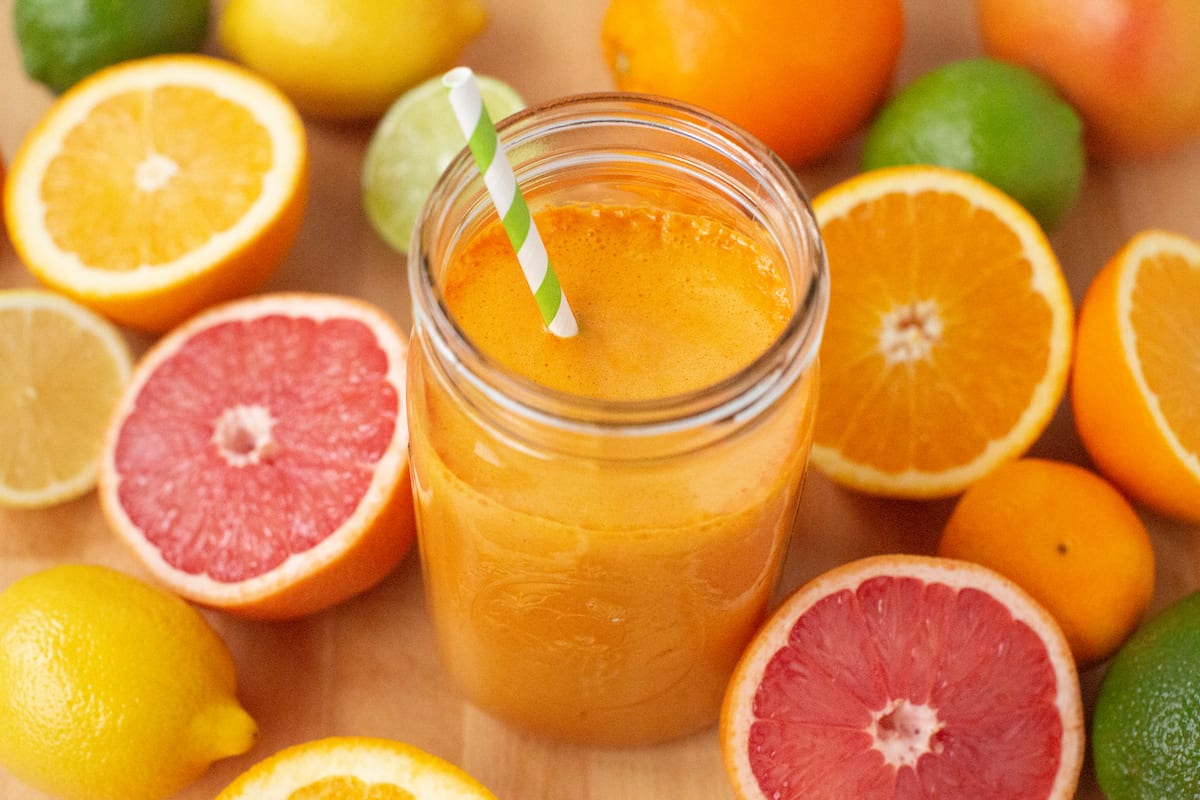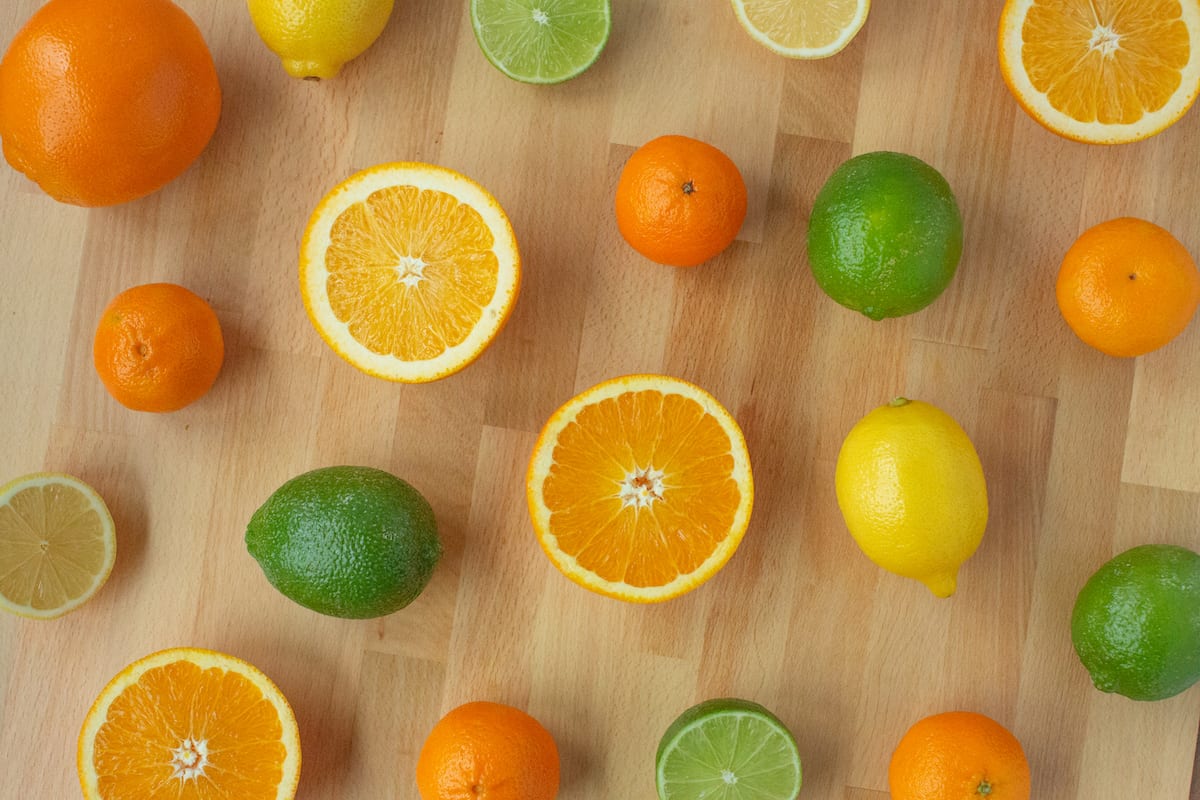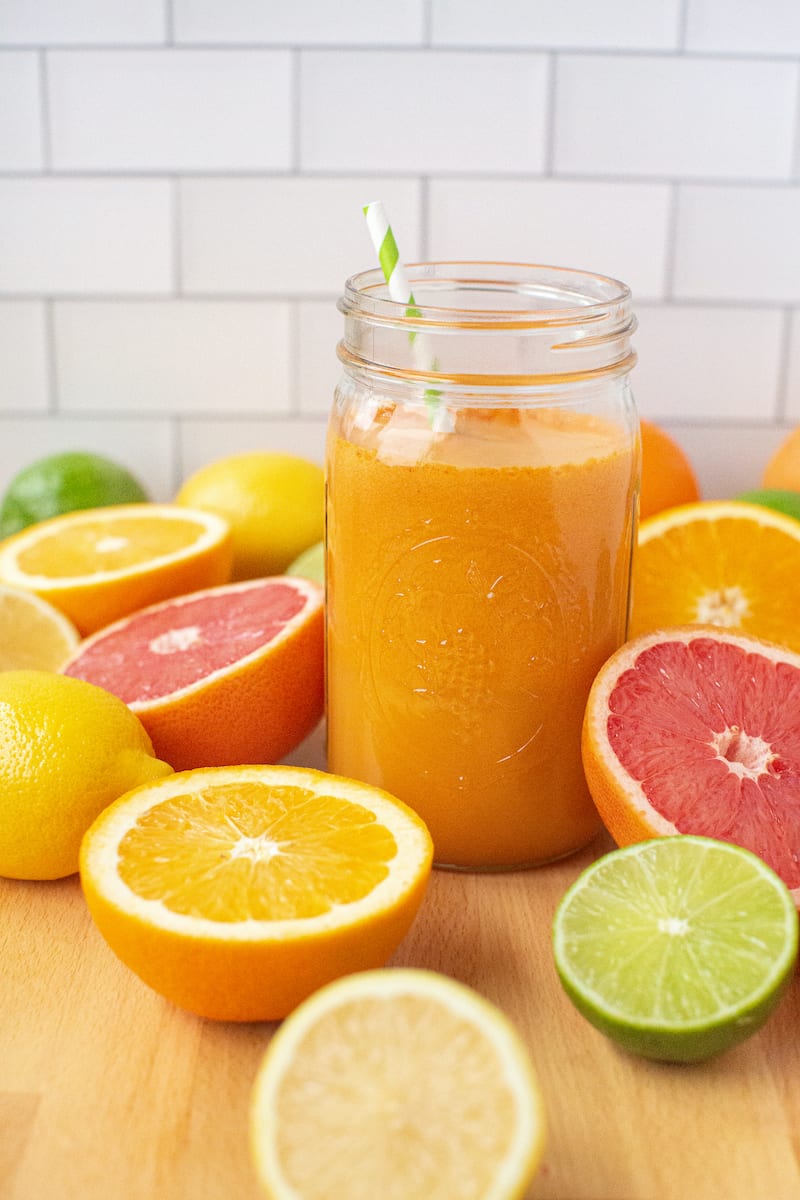
Sunshine in a Bottle Citrus Juice
by Meghan Rodgers
January 5, 2021
Is there any better way to wake up than with an invigorating glass of chilled orange juice? That fresh and frisky citrus scent alone is an all-natural pick-me-up, and the crisp, bright taste is incredibly energizing. Orange juice seems simple enough to fit in just about any diet — it is just oranges after all, right? If you’re vegan or vegetarian, you might want to look at the label again.
If your orange juice carton says “100 percent orange juice,” no worries. Your product is made entirely from oranges (and likely other sweeteners). The real trouble lies with fortified products.
Orange juice is naturally loaded with immunity-supporting, anti-aging vitamin C, but some store-bought brands like to give their products a little extra boost in the nutrition department. Once orange juice has been “fortified”, it’s no longer simply just oranges.
How are some orange juices not vegan-friendly?
Many common grocery store brands will fortify their orange juice with vitamin D, a vitamin our bodies produce naturally when exposed to sunlight. If you aren’t vegan or vegetarian, this is a good thing because vitamin D is known to fight disease, reduce depression and aid in maintaining strong bones in teeth.
If you are vegan or vegetarian, vitamin D might not initially raise any red flags, but a closer look will reveal that vitamin D3 actually comes from animals. (Vitamin D2 is plant-based.) D3 is produced from either lanolin from sheep’s wool or from fish oil.
Additionally, “heart-healthy” labels mean your food is likely fortified with omega-3 fatty acids. These are great at helping to protect again heart disease, but as a vegan or vegetarian, you should know those healthy fats come from fish oil or fish gelatin.
But don’t fret! There is no need to give up your daily glass of OJ. As long as you’re making it at home (or buying non-fortified OJ at the store), you’re surely sticking with an animal-friendly diet.

Another benefit of making your own orange juice at home is that you get to cut out the sugar store-bought brands add. Plus, you get to control for your perfect level of pulp. Keep in mind, the more pulp, aka fiber, the more beneficial to your body.
Lastly, of course, you get to control the flavor. Get creative with fruit blends and create your perfect citrusy combination. Orange juice is great alone, but adding grapefruit, lemon, lime, and mandarins, can make for a crave-able culinary concoction of which, you can take all the credit!
Try this delicious Homemade Sunshine in a Bottle Citrus Juice for starters. The nice thing about making homemade juice is that you can substitute or cut nearly any ingredient and still end up with something great.
How long will homemade juice last?
Homemade juices taste best right after squeezing. They’re also the most nutritious. However, if you don’t have time to make fresh juice every morning, you can store it in your refrigerator in a glass jar with a lid for 2 - 3 days.
Can I make juice without a juicer?
Of course! High-powered juicers haven’t been around forever, but people have always loved sweet, fresh fruit juice!
If you don’t have a juicer at home, you can use your hands or a spoon. Room-temperature fruits are easiest to work with. Begin by firmly rolling each citrus fruit on countertop. Cut fruits in half, hold over container and give each piece several hard squeezes. Pressing the back of a spoon into the fruit can also help release more juice than human hand-power alone.

Ingredients
18 mandarins
9 oranges
2 grapefruit
1 lemon
1 lime
Direction
Rinse all fruits to remove dirt.
If using an electric juicer, peel all fruits. If using a hand juicer, leave rinds intact but cut each fruit in half.
Press all fruits through electric juicer. Alternatively, press each fruit and twist atop a hand juicer.
Enjoy!

Leave A Comment